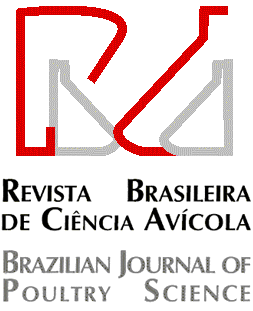ABSTRACT
Corn is the main energy feed used in broiler chickens rations in most countries. In the literature, there are indications that high density corn segregated in densimetric table contains higher value of metabolizable energy than the corresponding fraction of low density, but the reasons are not clear. This study was conducted to determine the metabolizable energy of different types of corn, segregated in densimetric table, for poultry. The corn types were selected by the texture of grain (flint, semi-dent and dent) and were planted in the same area. Semi-dent grain corn was used as standard, and the flint and dent grains were segregated in a densimetric table to separate 25% of the total as high density and 25% as low density. The flint, semi-dent and dent corn and the high and low density fractions of flint and dent corn were used in a metabolism assay with broiler chickens from 20 to 29 days of age, with 9 replicates, to determine the Nitrogen-corrected apparent metabolizable energy (MEn). The density of the different types of corn, measured as hectoliter weight, varied from 683 to 768 g/L for dent corn and from 778 to 802 g/L for the flint corn; the density of the unsegregated semi-dent corn was intermediate. MEn ranged from 3.109 to 3.194 kcal/g for dent corn and from 3.141 to 3.211 kcal/g for flint corn. MEn of the high density dent corn, 3.194 kcal/g, was higher (p<0.05) than that of the low density fraction, 3.109 kcal/g. Segregation of flint corn did not result in fractions with contrasting MEn values. For dent corn, segregation in densimetric table was effective, resulting in a fraction with improved MEn for chickens.
Keywords:
Corn; densimetric table; hectoliter weight; metabolizable energy
